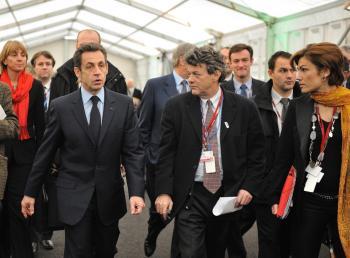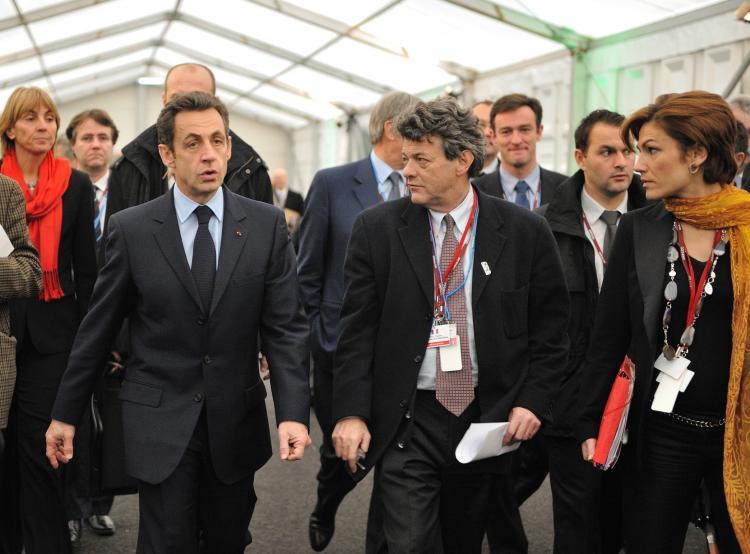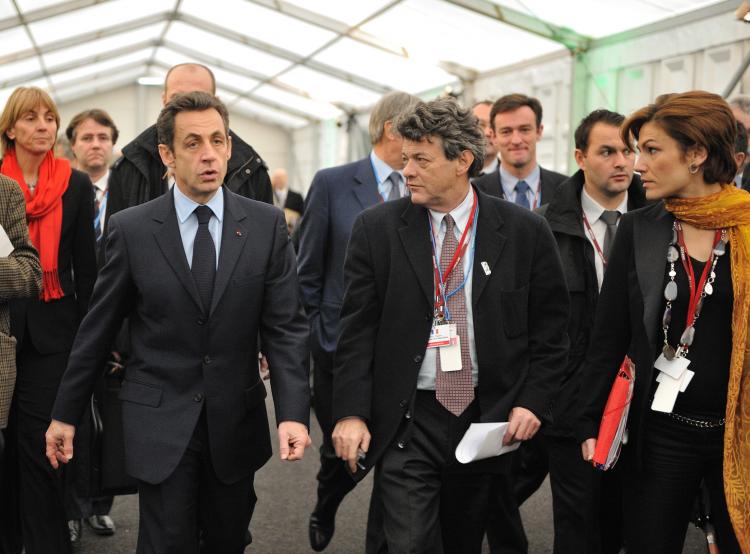PARIS—French Minister Luc Chatel announced on Jan. 5 that a new version of a long-discussed “carbon tax,” also called the climate-energy contribution, would be implemented in France starting July 2010.
The announcement follows a major setback for the French government in the last days of December, when the French Constitutional Council rejected the first version of the carbon tax on the grounds that it did not fairly balance the financial weight on French citizens versus French industries.
The initial project had prepared partial tax exemptions for economic sectors such as agriculture and transportation, and total exemptions for industries that were already subjected to European CO2 quotas. According to the Constitutional Council, in such a situation, 90 percent of CO2 emissions would not have been subjected to the tax pushed forward by President Sarkozy.
According to Le Nouvel Obs newspaper, President Sarkozy considers the carbon tax a hallmark and a high priority of his presidential mandate. Sarkozy is said to expect this tax to become a major social and political event for France, matching in importance the abolition of the death penalty in 1981.
The general idea is that it should prime a gradual change of social behavior toward greater soberness concerning CO2 emissions. Sarkozy also took a strong stance on the subject at the time of the Copenhagen climate summit last December, without then being able to obtain international written commitment to CO2 reductions.
Yet for centrist opponent François Bayrou, Sarkozy “governs with façade announcements, not with careful thinking; he acts without order, with no consideration of the consequences, or even of the law. So finally no reform can be done in depth and pushed to the end.”
In his own political camp, some Parliament members such as Christian Vanneste have called on Sarkozy to abandon the tax, arguing that it would affect the competiveness of French industries and could potentially lead to severe electoral consequences for the upcoming March regional elections.
For Gilles Carrez, UMP (Presidential Party) budget representative in the National Assembly, “The best would be to build a system in which everyone would pay a generalized carbon contribution, with the same basis for each economic actor,” quoted La Tribune newspaper on Jan. 4. Carrez also suggested that any such paid carbon tax should justify a reduction on carbon quotas.
Each European country will soon be given a yearly CO2 quota, and starting in 2013 will have to pay for the right to emit CO2 over quota. In this system, countries will be allowed to buy or sell CO2 quota shares from other countries through an auction system.
In France, political opponents to the government had noticeably not anticipated the stance of the Constitutional Council. The Socialist Party had, for instance, only claimed that financial compensations offered by the government to citizens (in the form of a “green credit” meant to lessen the burden of the new tax) did not respect the principle of equality of citizens. The French government had planned a higher compensation for countryside citizens—said to be more dependent on fossil fuels—than for urban zone citizens.
Such claims of the opposition were rejected by the Constitutional Council, whose focus was on the necessary contribution of industries to the tax.
The government is convinced that a climate-energy contribution is needed to change behaviors, explained Chatel, and therefore does not wish to abandon the project.
In the new version of the text, the French government will comply with the requests of the Constitutional Council: French Economy Minister Christine Lagarde explained to Les Echos newspaper that industries will also have to pay a “light” carbon tax. After negotiation with the industries on the modalities of their contribution, the revised text will be submitted to the Parliament, probably in April this year, one month after the March regional elections.
The announcement follows a major setback for the French government in the last days of December, when the French Constitutional Council rejected the first version of the carbon tax on the grounds that it did not fairly balance the financial weight on French citizens versus French industries.
The initial project had prepared partial tax exemptions for economic sectors such as agriculture and transportation, and total exemptions for industries that were already subjected to European CO2 quotas. According to the Constitutional Council, in such a situation, 90 percent of CO2 emissions would not have been subjected to the tax pushed forward by President Sarkozy.
According to Le Nouvel Obs newspaper, President Sarkozy considers the carbon tax a hallmark and a high priority of his presidential mandate. Sarkozy is said to expect this tax to become a major social and political event for France, matching in importance the abolition of the death penalty in 1981.
The general idea is that it should prime a gradual change of social behavior toward greater soberness concerning CO2 emissions. Sarkozy also took a strong stance on the subject at the time of the Copenhagen climate summit last December, without then being able to obtain international written commitment to CO2 reductions.
Yet for centrist opponent François Bayrou, Sarkozy “governs with façade announcements, not with careful thinking; he acts without order, with no consideration of the consequences, or even of the law. So finally no reform can be done in depth and pushed to the end.”
In his own political camp, some Parliament members such as Christian Vanneste have called on Sarkozy to abandon the tax, arguing that it would affect the competiveness of French industries and could potentially lead to severe electoral consequences for the upcoming March regional elections.
For Gilles Carrez, UMP (Presidential Party) budget representative in the National Assembly, “The best would be to build a system in which everyone would pay a generalized carbon contribution, with the same basis for each economic actor,” quoted La Tribune newspaper on Jan. 4. Carrez also suggested that any such paid carbon tax should justify a reduction on carbon quotas.
Each European country will soon be given a yearly CO2 quota, and starting in 2013 will have to pay for the right to emit CO2 over quota. In this system, countries will be allowed to buy or sell CO2 quota shares from other countries through an auction system.
In France, political opponents to the government had noticeably not anticipated the stance of the Constitutional Council. The Socialist Party had, for instance, only claimed that financial compensations offered by the government to citizens (in the form of a “green credit” meant to lessen the burden of the new tax) did not respect the principle of equality of citizens. The French government had planned a higher compensation for countryside citizens—said to be more dependent on fossil fuels—than for urban zone citizens.
Such claims of the opposition were rejected by the Constitutional Council, whose focus was on the necessary contribution of industries to the tax.
The government is convinced that a climate-energy contribution is needed to change behaviors, explained Chatel, and therefore does not wish to abandon the project.
In the new version of the text, the French government will comply with the requests of the Constitutional Council: French Economy Minister Christine Lagarde explained to Les Echos newspaper that industries will also have to pay a “light” carbon tax. After negotiation with the industries on the modalities of their contribution, the revised text will be submitted to the Parliament, probably in April this year, one month after the March regional elections.







